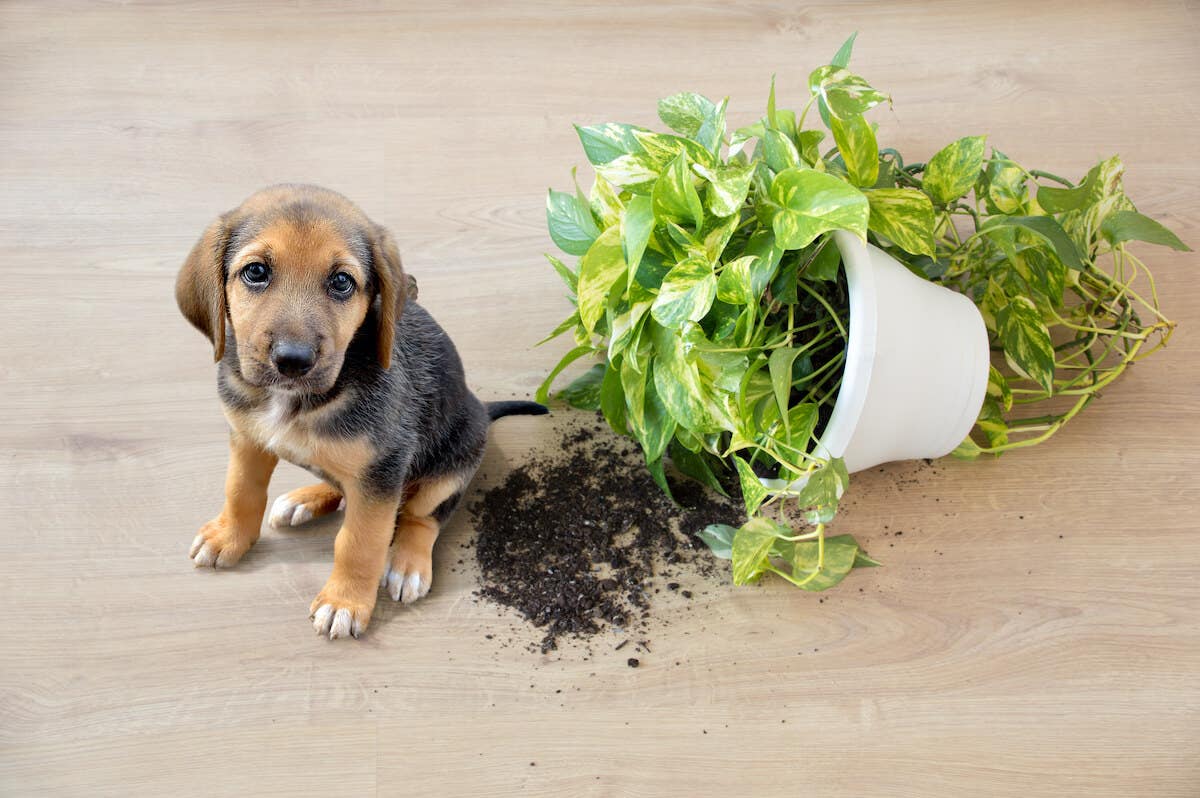Few events create as much excitement as bringing a new puppy into your home. That little ball of fur will have you wrapped around its paw in no time! But while a puppy’s energetic antics are often endearing, the combo can make your new pupper a less-than-ideal housemate.
If you have a new puppy or plan to get one soon (lucky!), you're going to want to puppy-proof your living space. Here are our top puppy-proofing tips to keep you, your dog, and all of your loved ones healthy and safe.
Socialize your puppy
One of the most important things you can do for your new pup is to socialize it. You want your dog to be comfortable in new environments, and socialization is the key. “Socializing” simply means teaching your dog how to behave with other people and animals, and you can do it by exposing your puppy to new situations.
Almost everything is new for a puppy, so you’ll have plenty of opportunities for socialization. For example, a walk around your neighborhood may lead to interactions with senior citizens and children alike. A puppy playdate might give your new dog a chance to walk on hardwood floors. All of these can improve your doggy’s confidence and behavior.
Good socialization makes your dog less likely to act aggressively even when it's afraid. Some homeowners insurance covers damages if your dog hurts someone outside of your family, but you need to check your policy. Lots of states require you to add animal liability.
Create a safe place to explore
Your new puppy is a bundle of curiosity, and investigating the world is an important part of socialization. However, you want to make sure your pup is protected as it explores. Doors leading to the outside or to risky areas (e.g., a basement) need to be closed, and stairs should be blocked with a baby gate.
The ideal situation for exploring the outdoors is a yard with a fence that your dog can’t jump over, squeeze through, or dig under. If that’s not possible, then you want to always have your dog on a leash, even in your yard.
Close windows and fix screens
Your puppy’s powerful sniffer may lead it to investigate breezes coming in from outside, so you want to make sure that you either close your windows or that your screens are in good repair. The idea that a beloved but nosey pet might fall from a window is tragic, but veterinarians treat victims of high-rise syndrome all the time.
Secure cords
While you're checking your windows and screens, take a look at your curtains and blinds. Puppies like to pull anything that can be pulled, and that includes cords of all kinds. You may be able to puppy-proof these by:
- Tying up the excess.
- Cutting the loop in the cord so it’s not a choking hazard.
- Adding a hook to the wall to secure them.
Electrical cords can also be a problem. You may be able to hide them in cord concealers or behind furniture that your puppy can’t access. Another option is to use a deterrent spray on exposed cords to discourage your puppy from playing with them.
Make harmful places off-limits
Puppies learn about the world around them using all of their senses, including taste. That means they’re likely to use their mouths to pick up all sorts of harmful items. Take a look at your home from that point of view, and you’ll see lots of areas that should be off-limits to Fido. Some examples include:
- Your garage.
- Your basement.
- Under sinks.
- Sheds.
If you store chemicals like antifreeze, cleaning solutions, fertilizer, or sharp tools in any of these places, then you want to minimize your pup’s access to them. Think, too, about trash cans under the sink or in your backyard. You may see this as just garbage, but your dog can find the smell irresistible, so make sure you have secure lids.
Store medications safely
Keeping medications out is handy for you, but your new puppy will find more ways to climb up a kitchen counter or nightstand than you can imagine. Play it safe and puppy-proof all your medications in a medicine cabinet that is well out of the reach of your pup.
Bonus tip: You might also want to store your pet’s medication in a place other than yours. Not only does that help you avoid mix-ups, but it may limit Rover’s interest in your meds.
Learn about toxic plants
Chemicals and medicines aren’t the only things your puppy might eat that can be harmful. Both indoor and outdoor plants may be poisonous, too. Take a look at this list of toxic plants from the American Society for the Prevention of Cruelty to Animals (ASPCA). Once you know, then you can either put your plants out of your puppy’s reach or get rid of them altogether.
Keep batteries away from puppies
As we said, puppies like to chew just about everything. That’s annoying on its own, but it can turn dangerous if your dog gets its mouth on something with a battery. While your dog is young, put your key fobs, remote controls, and other battery-operated items on high shelves.
Bonus tip: Always have your veterinarian’s number on hand as well as the ASPCA’s poison control hotline at 888-426-4435.
Puppy-proofing your home is an important part of getting a new dog, but what do you do in an emergency situation? Check out our pet disaster preparedness tips for answers.

